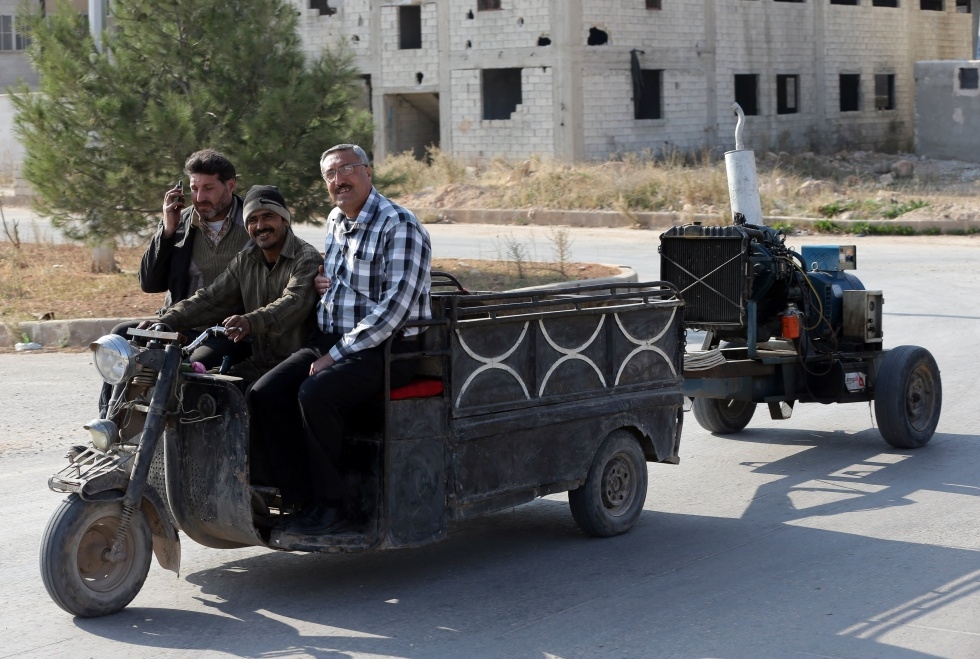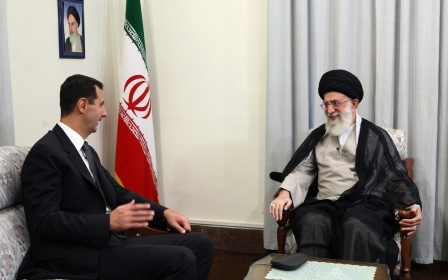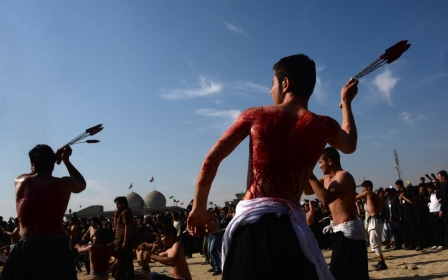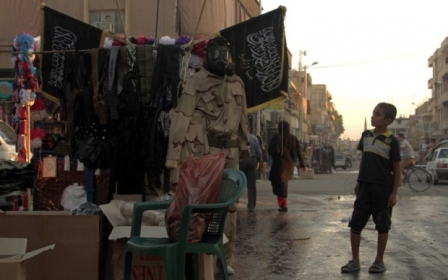Syria's Assad depending on Iran financial aid

The Syrian economy has effectively ceased to function, and President Bashar al-Assad's government is almost entirely dependent on loans from Iran and some aid from the Russian Federation.
Economic studies by the United Nations, the International Monetary Fund and independent economists paint a grim picture:
*Gross Domestic Product is now half of what it was three years ago, according to the IMF
*Oil production has effectively ground to a halt.
*Inflation is now at 50 percent
*Exports and imports are both reduced by 90 percent.
*Unemployment is at 50 percent.
"Syria as it was will never exist again. The economy will be smaller. The population will be smaller," said Bassel Kaghadou, director of the UN program National Agenda for the Future of Syria, in a statement released on 21 November.
"The government doesn't have any meaningful income anymore," warns Jihad Yazigi, editor-in-chief of the economic newsletter Syria Report, in an article published on 20 December.
"State investment in infrastructure has declined to virtually zero and salaries have remained stagnant," Yazigi said.
The government has had to scale back subsidies for citizens for goods ranging from water to heating to oil over the last six months, Yazigi said.
A delegation of Syrian officials visited Moscow on 17 December, to request a $3 billion loan.
Russia's aid to the country has, however, mostly consisted in the supply of arms in contracts that have earned Russian firms about $4 billion in funds supplied by Iran in 2013.
Russia is also concerned with the preservation of its naval base in Tartus, according to a 27 November report in the International Policy Digest.
On 27 May, 2013, the Syrian central bank announced that Iran was providing the country with a $4 billion credit. And in December 2014, Syria reportedly requested an additional loan of the same size.
"Needless to say, the Assad regime is now dominated by Iran," says the London-based Syria analyst Halia Diyab, in an interview with The Anadolu Agency.
"Not only does Iran have tremendous influence over the regime's decisions, but it also controls armed forces in the field that fight for the regime, and it funds the Hezbollah forces in Syria that are allied with the regime. So Teheran is well-placed to impose its will on the regime."
Benefits for Hezbollah
The Iran-Hezbollah-Assad alliance is critical for Hezbollah too.
"Without the ability to operate within Syria, Iranian support to Hezbollah becomes much more difficult and risks interdiction; Hezbollah’s own military capabilities and readiness would suffer without access to this military and financial assistance. Third, the group also seeks to prevent the emergence of a Sunni-dominated regime in Syria should Assad fall," writes Institute for the Study of War analyst Marisa Sullivan in a report published in May 2014.
"Assad has sold Syria to the Iranians," insists former Syrian army General Manaf Tlass in an interview with the Wall Street Journal on 21 December.
"Bashar never opted at any time for serious and credible reforms, but instead chose to destroy the country rather than lose power," Tlass said.
There is a deep frustration within Syrian society that main actors in the armed conflict are not concerned about the needs and priorities of the people, explains the Syrian Centre for Policy Research, in a report published in May 2014.
While both Russia and Iran have protested their desire to maintain Assad in power in Syria, some analysts think that they may choose to preserve the government without the current president.
"The peace negotiations between some factions of the opposition and the regime, which are to take place in Moscow in January, could provide an exit strategy for Assad," Diyab suggests.
"The presence of opposition leader Moaz al-Khatib at these talks is significant, as he is one of the few in the opposition who have proposed a negotiated peace with the regime. It would be much easier to reach agreement on such an arrangement if Assad were not part of it. It's not clear how long Moscow and Teheran will continue to fund the Assad regime under the present conditions."
However, the president of the Syrian National Coalition -- the main Syrian opposition group -- said it had not received any formal invitation from Moscow. A large number of the opposition factions do not plan to take part in the Moscow talks.
With the price of oil dropping drastically, neither Russia nor Iran could continue its aid to Assad indefinitely.
Desperate measures to recruit pro-Assad fighters
The drying up of funds could be one of the reasons Assad has recently intensified efforts to mobilise reservists, in order to make up for the loss of soldiers who are deserting his army or draft-dodging.
These efforts include sweeping arrest campaigns against those who attempt to avoid serving in his army.
"In October, the regime stepped up activations of reserve forces. Tens of thousands of reservists have been called up, and soldiers and militiamen have erected scores of checkpoints and increased raids on cafes and homes to apprehend those reservists who refuse to comply. Similar measures increasingly target those who avoid regular military service, a compulsory 18-month period for all men who are 18 and older," wrote Hugh Naylor in the Washington Post.
"In recent weeks, the regime also began upping threats to dismiss and fine state employees who fail to fulfil military obligations, according to Syrian news Web sites and activists. In addition, they say, new restrictions imposed this fall have made it all but impossible for men in their 20s to leave the country," he added.
Another factor that could be causing desertions in the ranks of the army is a growing dissatisfaction amongst the Alawite community, on whose support Assad has relied on throughout the war.
The Alawites, who make up some 12 percent of the population, top the ranks of Syria's professional army and security services.
However, in recent months analysts say cracks have been appearing in the community, whose members span the socio-economic spectrum in Syria.
In July, a group of Alawite activists launched the Speak Up Against Assad campaign, protesting against the high numbers of deaths among Alawites during the war.
Then, in October, a group calling itself the Syrian Alawite Congregation issued a statement calling on Alawites to "take a stand against Assad’s regime," also citing high death rates among their community.
The statement alleged that Alawites were targeted for conscription in the pro-Assad paramilitaries, "because the President believes they are most faithful to him."
If these cracks deepen, and significant numbers of Assad's sect come out against him, the results would be catastrophic for Assad.
New MEE newsletter: Jerusalem Dispatch
Sign up to get the latest insights and analysis on Israel-Palestine, alongside Turkey Unpacked and other MEE newsletters
Middle East Eye delivers independent and unrivalled coverage and analysis of the Middle East, North Africa and beyond. To learn more about republishing this content and the associated fees, please fill out this form. More about MEE can be found here.




